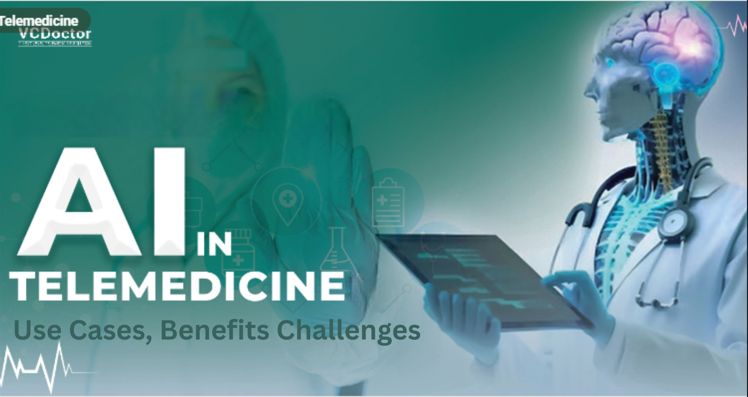The Importance Of ERP System In Healthcare: A Comprehensive Guide
- helpdeskvcdoctor
- Mar 7, 2024
- 3 min read

Shifts in technology have accelerated working in the healthcare industry. Technology like Enterprise Resource Planning (ERP) is introduced to remove the shaft from the different channels and work seamlessly. So, what is an ERP System, and the Importance of an ERP System in Healthcare? The article is an insight into ERP solutions that have surfed several times on the Internet.
According to statistics, the US healthcare ERP market will grow by around $2.1 Billion by 2025. With the expansion of the mechanism, the Global Healthcare ERP Market size is expected to reach $9,399.8 million by 2027, rising at a market growth of 6.5% CAGR during the forecast period. Hence, it becomes a crucial aspect to study the entire concept and the advances it brings to the healthcare industry.
What is the Importance of ERP in Healthcare?
Enterprise resource planning (ERP) is a crucial tool for companies that rely heavily on supply chain and logistics management. In the healthcare industry, ERP is essential for managing multiple units and departments that require continuous updates and synchronization for efficient workflow.
Beyond the doctors and patients, the healthcare industry also involves managing medical supplies, inventory, pharmacy, patient relationships, staff, and doctor management, billing and payments, revenue cycle management, supply chain management for pharmaceutical manufacturers, and more. To ensure an organization’s efficient operations, all these components need to be reviewed and updated in real time.
Advantages of ERP for Hospitals
Enterprise Resource Planning (ERP) can bring numerous benefits to hospitals, including reducing operational costs, initiating best healthcare practices, enhancing patient safety, providing business intelligence and planning, managing inventory, and electronic storage of information.
Reducing Operational Costs
ERP software automation can improve the alignment of various units such as staff management, payroll, accounting, patient care, billing, and more. Consequently, it can free up resources, improve communication, and lower costs.
Initiating Best Healthcare Practices
By integrating important facilities, hospitals can initiate some of the best practices for patient care. It can enhance coordination and collaboration between different specialty departments such as radiology, OPD, and emergency services can offer better services.
Patient Safety
An ERP program aids enhances patient safety as well. It streamlines communication between doctors and patients, establishing a culture of patient wellness at every level from registration to checkout.
Business Intelligence and Planning
ERP helps identifies problem areas and targets them, improving overall performance. Top management can monitor and evaluate the effectiveness of the current policies using an ERP system. It also can be an effective business intelligence tool to compute and evaluate operational effectiveness and provide details on spending, requests, and patient visits.
Inventory Management
A hospital’s inventory comprises various medical items. Managing sales, supplies, and refills is not easy. An ERP system makes inventory control click easy. With an ERP business owners can automate expiry alerts – enabling them to take action on time It is simpler to estimate and plan a reorder with the supplier.
Electronic Storage of Information
To maintain the security and privacy of all the data, hospitals need to store a vast amount of information pertaining to patients, their contact details, visit details, billing details, and more. ERP software for the healthcare industry can help store all this information safely and securely. With an ERP system, users can easily update all the data entered into the application.
ERP for The Pharmaceutical Industry
An ERP system for the pharma manufacturing sector can streamline manufacturing procedures and expedite distribution while being compliant with strict FDA regulations. Here is a list of advantages of ERP for the Pharmaceutical Industry
Compliance and Traceability
An ERP can dynamically adjust formulas to achieve cost and physical target parameters, create audit reports compliant with master batch records, and draft traceability reports.
Costing and Analysis
Pharma companies need to optimize resource utilization for MRP planning and monitor fixed, tired, and variable labor costs to control costs. An ERP system lets them dynamically adjust recipes to meet cost target values.
QC and QA
Pharma manufacturing needs quality control, and an ERP system can create libraries for customized instructions, inspection checklists, and quality control.
Warehousing
With the aid of ERP, businesses may carry out pick, pack, shipping, receiving, and put away duties inside the warehouse while reducing errors and rework and obtaining crucial data.
Planning and Scheduling
Companies must plan and schedule resources for the production cycle to ensure on-time delivery, and ERP can track resources, manage production schedules, and control material requirements planning (MRP).
Final Words
These are the few benefits & importance of ERP solutions for the healthcare industry. Many businesses have started applying this mechanism to their work to drive thriving business opportunities and desired business growth. Simultaneously, the work has now been more streamlined with the help of Enterprise Resource Planning solutions.
VCDoctor telemedicine solutions have a wide range of effective solutions for your business. We deliver efficient solutions with ultimate customer satisfaction. Get in touch with our experts today and discuss your requirements!
Original Blog Source: https://www.vcdoctor.com/blog/importance-of-erp-system-in-healthcare/








Comments